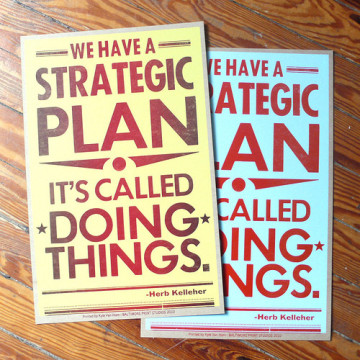Physicians Who Feel Relevant

I'm always surprised at the number of physicians I work with who worry about, discount, or do not see their relevance outside of clinical practice. I do, of course, recognize their relevance - the trick is to get the docs to.
For many physicians, venturing into positions of leadership, becoming a Department Chair, VP Medical Affairs or even Chief Medical Officer) is a logical step for those looking to expand their skills and take on new responsibilities that grow their career. The physicians that pursue these roles have obvious relevance in this arena, particularly when they bring the years of relationships and their history with the hospital into the role.
But for docs actually leaving the familiarity of the hospital environment, the fear of being irrelevant seems to be a common (if not typically expressed) theme. Many physicians worry that while they have developed very deep skills and expertise, their repertoire is relatively narrow, and this makes them fear that they lack the requisite skills to be successful in the non-clinical world. For most, this is simply not true.
Physicians come to the table with a myriad of transferable skills, as well as a wealth of needed knowledge and expertise. Many times organizations are hungry for what the doctors have to offer, and for the value that they provide.
In my experience, one of the best parts of working with physicians interested in non-clinical pursuits has been accompanying these intelligent, creative and energetic professionals as they realize that they have a lot more to offer - and are more in demand - then they ever thought they would be.
The truth of the matter is that you, as a physician, bring years worth of skills and experience that can position you to be a tremendous value to organizations that lack your unique combination of ability and expertise. Value comes in the form of younger docs with years of disciplined schooling under their belts and a willingness to "jump in", or mid-career physicians who have enough experience to know what they didn't know in the beginning (and how to use that for the best outcome), or seasoned docs that bring decades of experience and perspective with them into their role.
Many of the physicians I know that have transitioned completely outside of medicine into start-ups, biotechs, or pharma companies often remark that they cannot believe the organization functioned without a doc in their role. It gives them a window into the need for physicians' skills and knowledge base outside of clinical work, and how they can impact many more lives than they would seeing patients one-by-one.
They feel validated. And indeed, they feel relevant.
 Email This Article tagged:
Email This Article tagged:  Non-Clinical Skills,
Non-Clinical Skills,  Nonclinical Career,
Nonclinical Career,  physician career transition |
physician career transition |  Jul 12, 4:00 PM
Jul 12, 4:00 PM 








